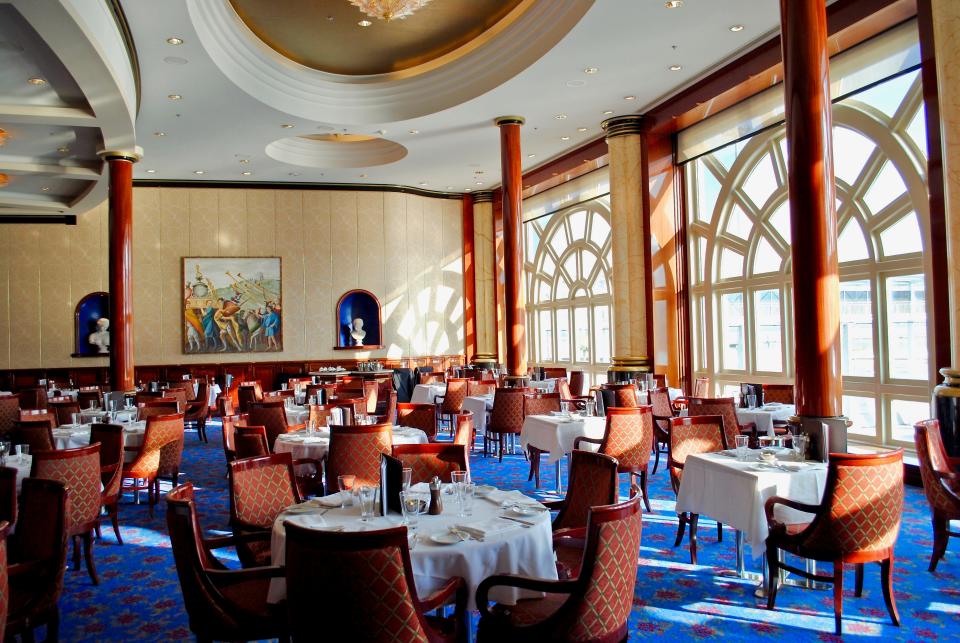I've been on 110 cruises. Here are 7 myths I want to debunk for hesitant first-time cruisers

I've spent decades going on over 100 cruises and I've heard a lot of misconceptions about them.
Cruises don't always have to be super expensive and seasickness isn't a guarantee.
I don't think cruises are boring — and they aren't just for elderly people, either.
I waited 20 years before I boarded a cruise ship and I've now gone on 110.
In my decades of cruising, I've learned there are a lot of reasons people are nervous to go on their first cruise. I can readily relate to some of them, but I now believe this type of travel is worth trying at least once — you, like me, may even get hooked.
Here's my breakdown of some common myths about cruising that may prevent people from giving this type of travel a chance.
MYTH: Wealthy people are the only ones who can afford cruises
I always thought that cruising involved big bucks, so it took me years to look into the actual cost. Finally, as my wife pointed out after researching, the real price was far lower than the figures in the brochures.
Keep an eye out for deals and special offers — a lot of cruises offer discount packages and rates that can make them more affordable. You can also look into shorter cruises that are only three or four days, which tend to be cheaper than ones that are over a week.
Just be careful to also watch your spending on board — temptation can be everywhere, but a little willpower and a periodic check of your bar tab can help keep you in line.

MYTH: Everyone gets seasick on cruises
Having traveled across both the Atlantic and the Pacific on Army troop ships, I found being seasick one of the worst experiences imaginable. Plus you're committed to a pretty tight schedule on a cruise, meaning limited stops on land and thus little hope of relief.
But a lot of large cruise ships today have modern stabilizers, so you may not even feel the swaying of the waves. Sometimes the movement feels more like vibrations and passengers can forget they're at sea.
Seasickness also doesn't happen to everyone — and, should you start to feel poorly, you can try to can manage it with special bands and medications.
MYTH: Cruises are only for the elderly
Some younger people may not want to go on cruises because they believe only older folks do it. Maybe this was common years ago, but today there are so many different lines and ships that target adults, families, and all sorts of groups.
For example, a young family might think twice about taking Holland American cruises, which are popular with older adults, but be drawn to Carnival, which is known for accommodating families.
If you're not sure if a cruise seems right for you and your group, check out its ports, activities, and itineraries.

MYTH: Being cooped up on a ship for a week will get really boring
A common concern that I've heard, but find hard to understand, is that being cooped up on a ship for seven or 10 days will get really boring.
In reality, all of the entertainment features, activities, and ports are more likely to leave you feeling exhausted. I have gone bowling on ships, played bumper cars, zip lined across upper decks, and almost went on a simulated sky-diving tunnel before I chickened out.
Don't worry about being bored — instead, worry about pacing yourself.
MYTH: The cabins are way too small for you to have a positive experience
The cabins on cruises are often really tiny — but if you don't love your room you can just spend more time elsewhere on the ship. There are tons of lounges and activities on board anyway.
You can also consider if it's worth it for you to pay for more space. Interior cabins are usually the cheapest and smallest. For more money, you can get window or balcony — or you can upgrade to a suite.
For some, it might be better to go on fewer cruises with nice suites instead of many cruises with OK cabins.

MYTH: Cruise ships are too formal
One of my early concerns was that some ships are very formal in the evenings when it comes to dress codes and activities.
But even though a lot of ships have formal nights (one or two for a seven-day cruise is standard) you have options if you don't want to participate. You also don't need to rent a tuxedo or buy a floor-length gown — the dress codes can be pretty flexible. Just be sure to look them up before sailing.
Plus you can always eat at a buffet or other dining area on the ship if you truly want to skip the formal nights.
MYTH: Restricted eating schedules make it hard to get food when you're hungry
Years ago, cruising was relatively formal, and your dining room and tablemates were preassigned. Today, most cruises have flexible meal schedules or, at the very least, serve at least some kind of food all day long.
Some lines, like Norwegian Cruise Line, offer freestyle dining where you eat when and where you want, with no fixed times or preassigned seating.
That said, keep an open mind about preassigned dining — you might find it's nicer than you think. I loved meeting up with the same group and having the same server each night who could remember my preferences and quirks.
Read the original article on Insider

 Yahoo Autos
Yahoo Autos 